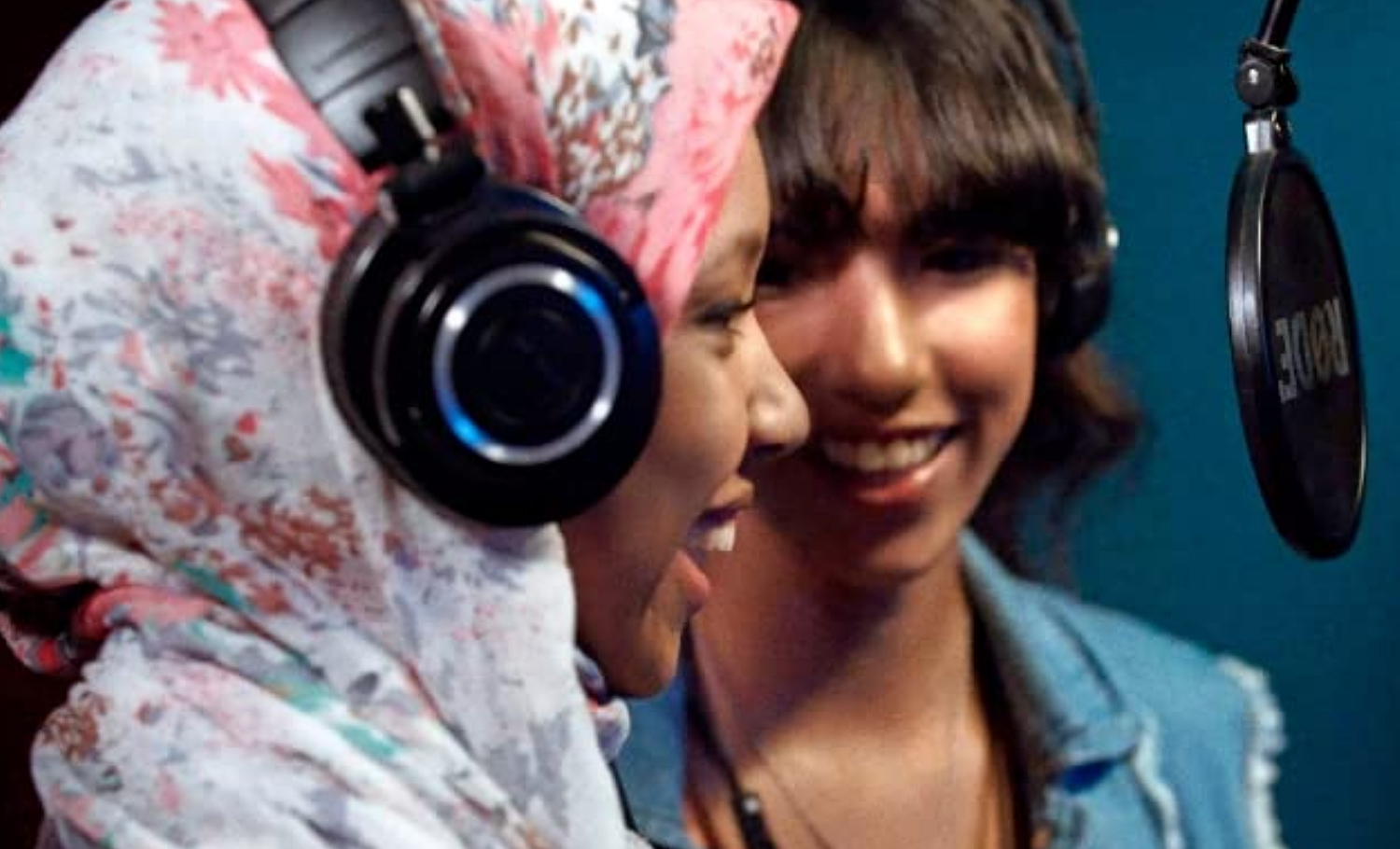
- Golden Globe Awards
Casablanca Beats (Morocco)
Hip-hop in Casablanca to fight intolerance, alienation and restricting traditions: the French Moroccan film Casablanca Beats is West Side Story in the time of the Arab Spring. The story is about a cultural center in which hip hop becomes a tool of emancipation for a group of youths from the outskirts of Casablanca. It’s a sort of artistic autobiography for the French-born writer-director Nabil Ayouch who has Moroccan heritage and who lived similar experiences growing up in a working-class district of Paris. Ayouch is also the founder of the center depicted in the movie, which now has branches in Tangiers, Fez, Agadir and Marrakech.
Morocco’s Golden Globe candidate and Oscar submission, Casablanca Beats debuted last July at the Cannes Film Festival (competing for the Palm d’Or) and it was recently shown in Rome as part of the MedFilm Festival. With its coming-of-age story with hip hop beats in the background, and its look at young people trying to find their way in the world and unity among diversities, the film touched a theme dear to international festivals such as MedFilm.
Produced in 2021 by Ali’n Productions (Morocco), Les Films du Nouveau Monde (France) in co-production with Unité and Ad Vitam (France), with a running time of 102 minutes, filmed entirely in Casablanca, the film follows the story of Anas (played by real-life rapper Anas Basbousi), a former rapper working in the cultural center of a working-class neighborhood in the city of Casablanca. Anas leads a flock of young people, girls, and boys, for whom rap is a vital passion.
Ayouch’s main goal with his film was to reflect on a “particular view on freedom of expression”, and the gap and eventually dialogue between different worlds and generations.
“There can be misunderstandings,” said Ayouch. “Many parents have pulled their children from the centers because they did not understand the critical spirit conveyed by rap, they were afraid of it. We then invited them to help them get to know better the activities in places where the energy of youth becomes music to express personal views as well as reflections on society, politics, and religion.”
Ayouch notes that “from a cultural point of view, in the 1990s Morocco, thanks to satellite TV channels, was looking at Middle Eastern content from countries such as Saudi Arabia, the UAE or Egypt. When the internet and social media arrived, it gave Morocco a wider and more contemporary vision of the world. The film depicts the energy of Moroccan youth striving to express its needs in a way full of positive attitude through song and dance.”
Bypassing linear and narrative arcs, Ayouch moves from student to student, focusing his hand-held camera on each one, following them into their homes, letting them express themselves in verse or dance.
“Don’t run from your reality,” Anas tells his sometimes distracted and introverted students in the film. The real challenge is to take that inner turmoil and cast it back into the world. Anas wants to stir up their desires, frustrations, doubts and dreams. This kind of music is at the heart of the “Arab Spring”, and it’s the same kids play in New York, Paris or Berlin, cutting across any cultural divide.
Ayouch, 52, known as a director with intense works such as Razzia (2017) and Much Loved (2015), considers film as a sort of activism. “Quite early [in life] it appeared to me that arts and especially music could be a major factor of changes,” Ayouch said to the Hollywood Foreign Press. “I actually experienced that when I was younger, in the suburb of Paris where I grew up in the little city called Sarcelles. My island was a cultural center, exactly the same that we see in the film, but on the other side of the Mediterranean, where we learned how to tap dance, how to sing, how to play music, where I saw my first movies with Chaplin and Eisenstein, and I saw my first concerts. It was a difficult period for me for different reasons, and essentially identity reasons. And this center helped me a lot.
“That’s why when I became a director, thanks to that center I decided that I would in a certain way give back what I was given when I was younger because I knew what the impact could be huge on a youngster.” He chose hip hop, he explains, “because this is the major of expression today for the Arab youth, and especially if we come to talk about Morocco. When you talk to a youngster in the streets today, they only talk to you about hip hop, that is their way of expression. That is why I don’t consider it as Western music anymore. For them it’s probably the biggest way to say what they have to say, politically, socially, and culturally.”

